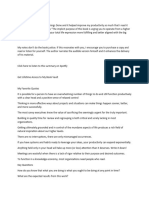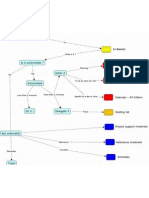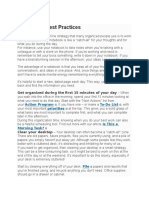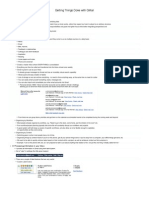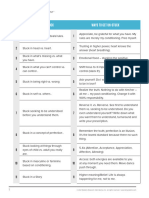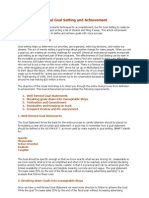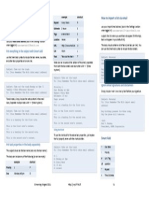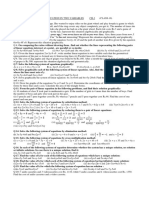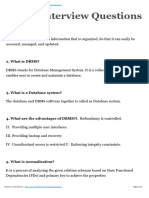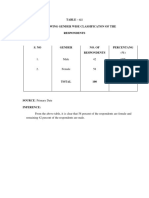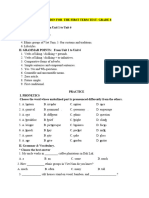0% found this document useful (0 votes)
179 views22 pagesTime Management: "Getting Things Done"
The document discusses the time management system called "Getting Things Done" (GTD). GTD is based on the premises that the brain is ineffective for tasks and that a trusted system is needed. It involves capturing all tasks in inboxes and organizing them into "next actions," projects, and areas of responsibility. The system provides an effective way to reduce stress and stay on top of everything through proper organization and next step identification.
Uploaded by
Clecio GuaranysCopyright
© Attribution Non-Commercial (BY-NC)
We take content rights seriously. If you suspect this is your content, claim it here.
Available Formats
Download as PPT, PDF, TXT or read online on Scribd
0% found this document useful (0 votes)
179 views22 pagesTime Management: "Getting Things Done"
The document discusses the time management system called "Getting Things Done" (GTD). GTD is based on the premises that the brain is ineffective for tasks and that a trusted system is needed. It involves capturing all tasks in inboxes and organizing them into "next actions," projects, and areas of responsibility. The system provides an effective way to reduce stress and stay on top of everything through proper organization and next step identification.
Uploaded by
Clecio GuaranysCopyright
© Attribution Non-Commercial (BY-NC)
We take content rights seriously. If you suspect this is your content, claim it here.
Available Formats
Download as PPT, PDF, TXT or read online on Scribd
/ 22


